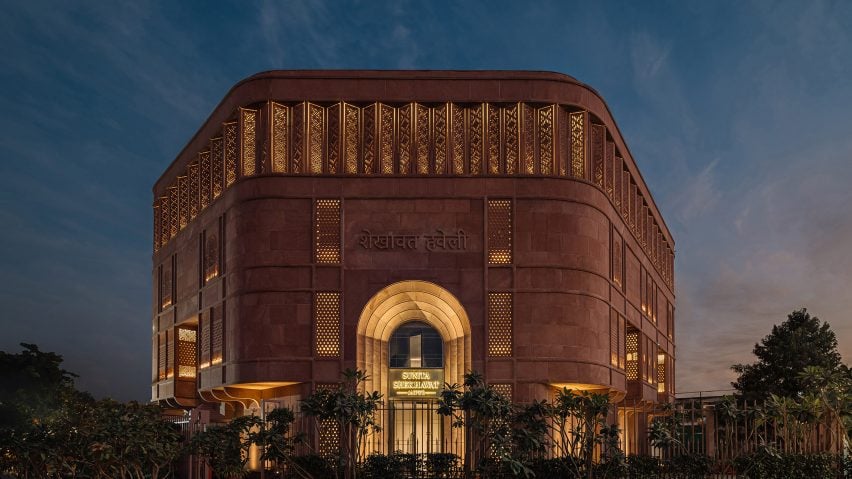
Studio Lotus wraps stone lattices around museum-cum-jewellery store in Jaipur
New Delhi practice Studio Lotus has used stone lattices and frescoes depicting regional architecture to embellish the Museum of Meenakari Heritage and Sunita Shekhawat jewellery store in India.
Designed as the flagship store for Sunita Shekhawat's eponymous jewellery brand in Jaipur, the building contains a museum focused on the craft of Meenakari on its ground floor.
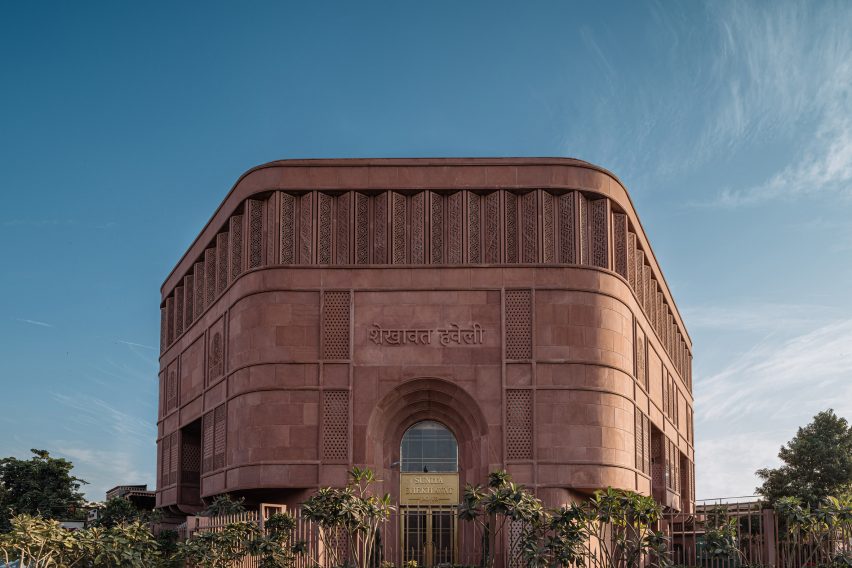
According to Studio Lotus, it aimed to "foster an environment where the act of purchasing jewellery is not the primary goal", but instead becomes a "natural conclusion of a transformative experience".
"The underlying emotion behind the Meenakari museum – the first of its kind – becomes the client's way of paying homage to the city that has given her so much, while also establishing a novel paradigm in luxury retail design," the team explained.
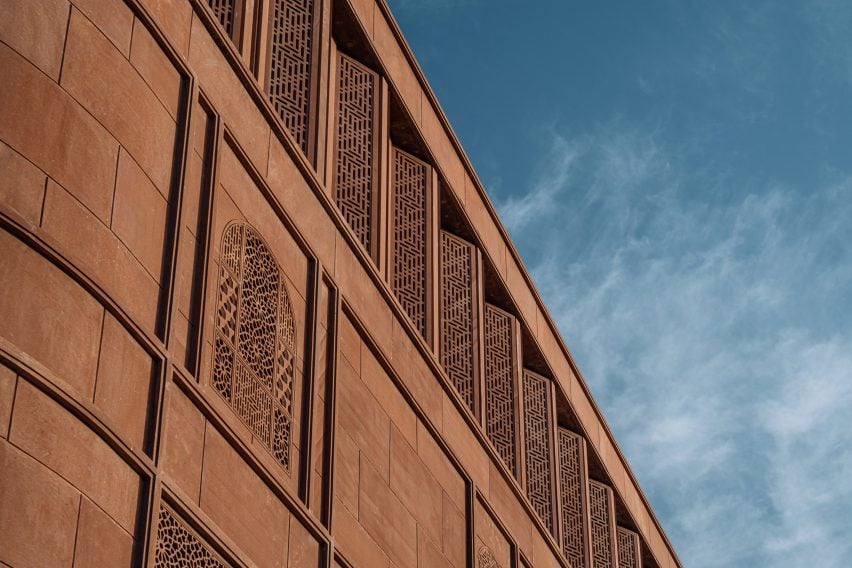
Working within the structure of a partially complete building on the site, Studio Lotus created bevelled balconies to produce a form that "intricately layers patterns and details and draw from different periods, woven together into one cohesive image".
The details and lattices take cues from historic influences such as Rajputana, Mughal, and Art Deco – as a nod to the city's architecture and Shekhawat's approach to jewellery design.
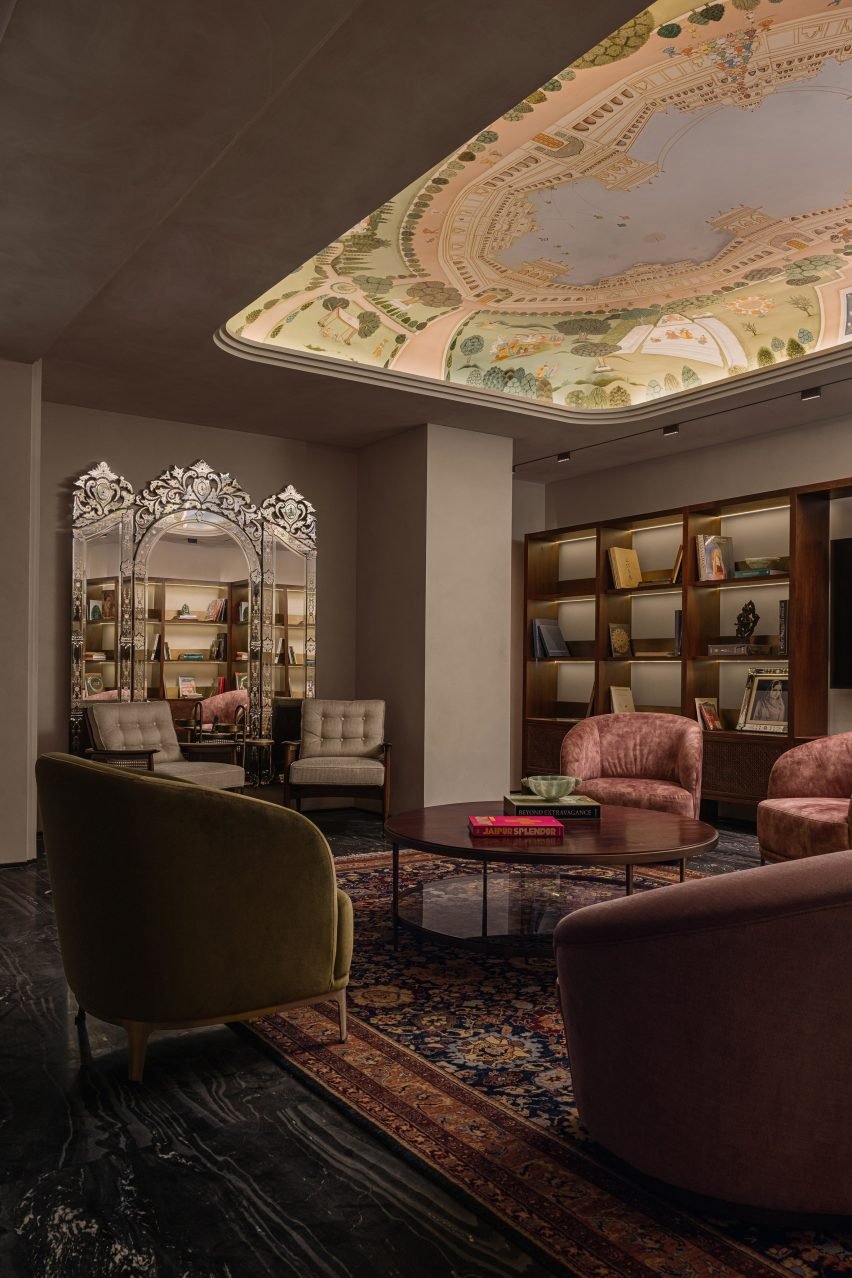
Shekhawat uses Meenakari, or the art of enamelling metal, as the foundation of her jewellery work.
To reflect this, Studio Lotus convinced Shekhawat to create a museum or "storytelling space" that presents the history of Meenakari craftsmanship on the ground floor, in a space that was originally earmarked for the store.
"We seized this challenge as an opportunity to create a narrative gallery," Studio Lotus founder Ambrish Arora told Dezeen.
"In collaboration with Usha Balakrishnan and Siddhartha Das Studio, we were able to create or, rather, open up the world of enamelling from different perspectives for the visitor."
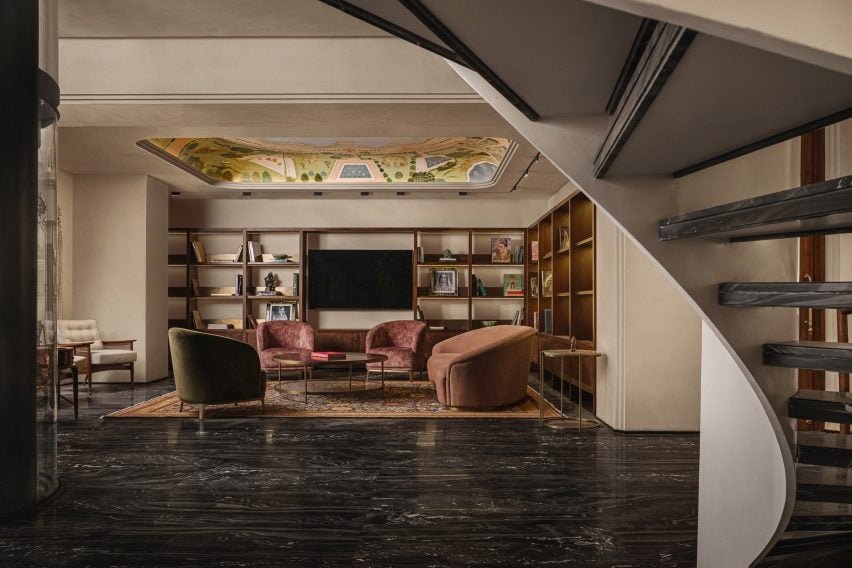
The store was placed below, on the lower ground floor, with a gallery space clad in an off-white araish lime stucco surrounded by private pods designed for one-on-one client interactions.
Arora explained that the wide floorplate and tall ceilings of the lower ground floor "lends itself well to the exclusive, by-appointment-only, bespoke nature of the business, and of the product too — the lack of natural light being conducive to the controlled lighting necessary for jewellery display".
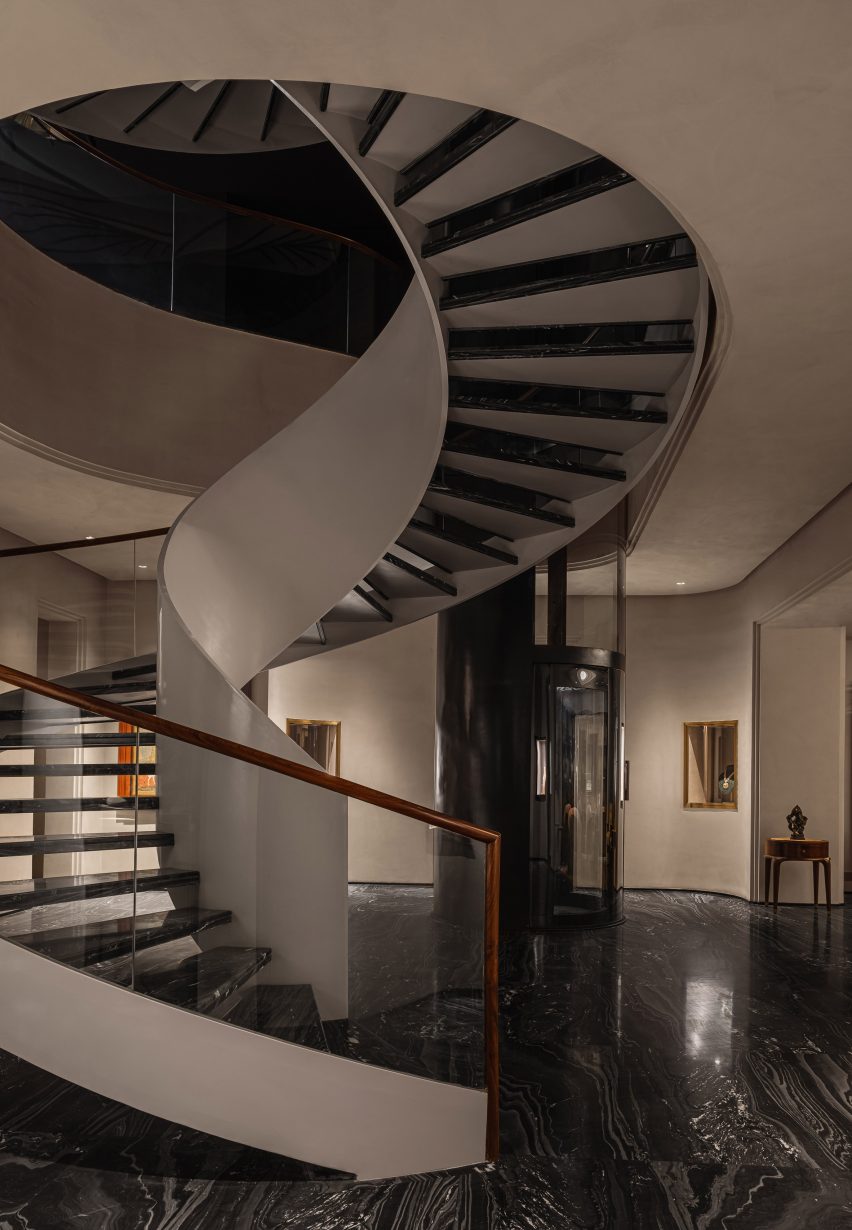
The semi-vaulted ceilings of the pods are adorned with frescoes by artists specialising in miniature paintings, which depict the region’s architecture, flora and fauna.
The practice commissioned CraftCanvas, a collective of artisan communities in India, to develop the frescoes. The scale and curved profile of the ceilings proved to be a challenge for the artists.
"It took repeated trial and error and a commitment, collaboratively, to reach a certain benchmark," said Arora.
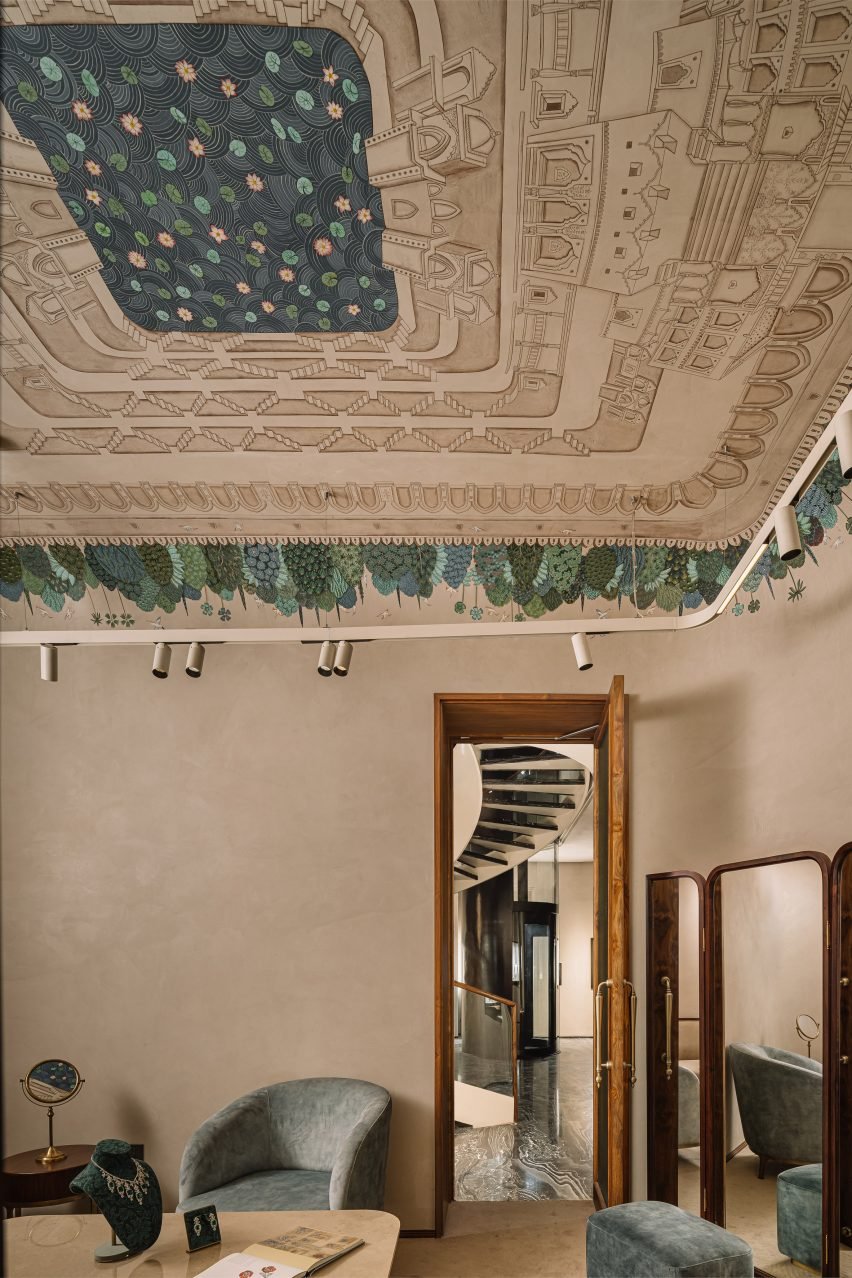
All of the floors within the building are connected by sculptural staircase at the centre of the building.
Shekhawat's office and design studio are located on the first floor, while a restaurant and bar is planned for the top floor, which has views across the city.
This floor was wrapped in glazing and shaded by stone lattices, which was designed to "respond to the inward-looking program on the lower floors".
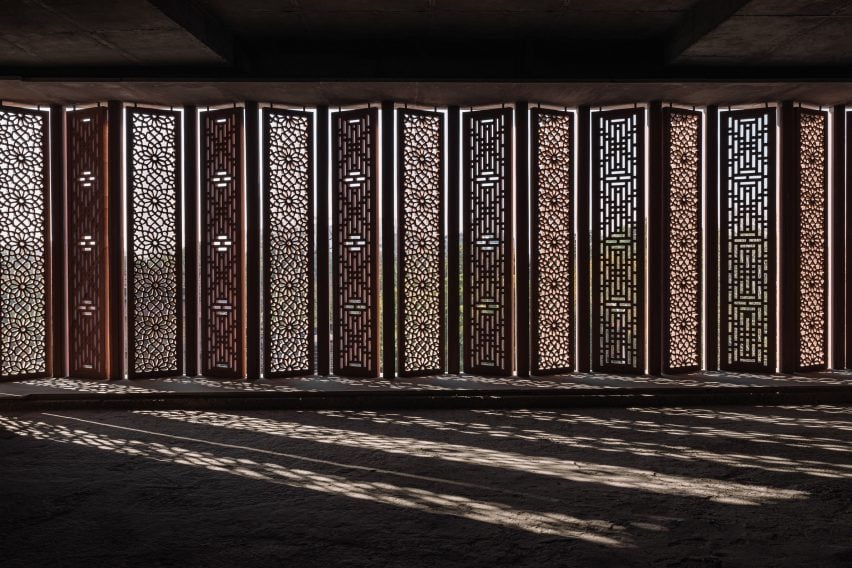
The exterior of the building was clad in Jodhpur red sandstone, paying homage to Shekhawat's hometown and in line with the colour scheme of Jaipur's – or the Pink City's – buildings.
According to the practice, it aimed to engage with local craftspeople throughout the construction process – from crafting the furniture inside the space to cladding the facade.
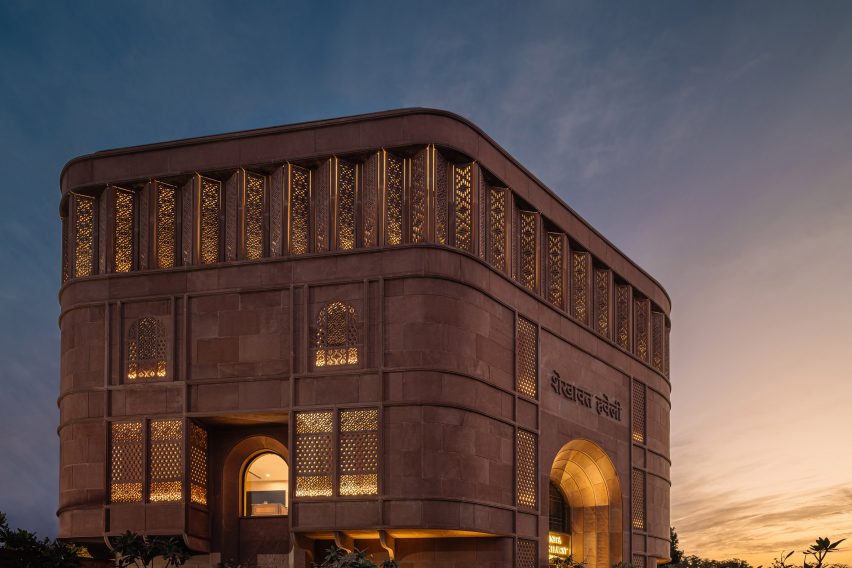
Studio Lotus was founded in 2002 by Arora, Ankur Choksi and Sidhartha Talwar. The studio works on a wide range of cultural, residential, commercial and mixed-use projects – including a government building in India clad in intricate brickwork.
Other Indian architecture projects recently published on Dezeen include a home in Hyderabad topped with a lantern-like roof and a set of six holiday homes in Goa defined by peach-toned walls and arched openings.
The photography is by Ishita Sitwala